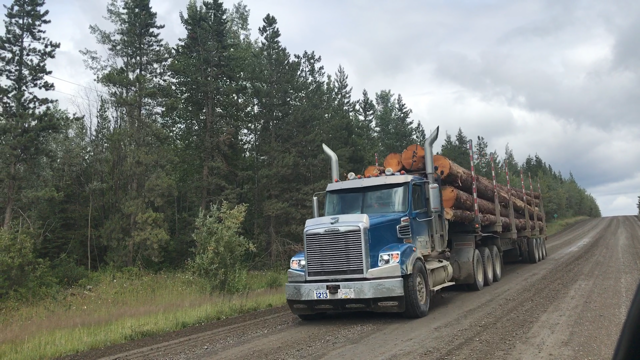The province is doling out $5 million to struggling logging contractors impacted by the longest strike in coastal forest history.
Premier John Horgan made the announcement yesterday, during his speech at the Truck Loggers Association convention in Vancouver.
Association executive director, David Elstone, said the funds will help contractors continue to pay for their equipment.
The labour impasse between the United Steelworkers union and Western Forest Products started on Canada Day, and impacts 3,000 coastal forestry workers.
“It’s been seven months without earning any income and their current financing is being stretched,” Elstone said. “Obviously, we don’t know when the strike is going to end. Hopefully it ends… next week, maybe it’s going to end in two months from now. We don’t know.”
In a statement, the province says that “we know how difficult the ongoing labour dispute is for workers, contractors, families and coastal communities. This dispute has taken a toll on everyone in the community, and has been an especially long, difficult and stressful time for forestry workers.
Our government is committed to supporting forestry workers, contractors and their families. That’s why we have created the $5 million Coastal Logging Equipment Support Trust that will provide financing to eligible coastal logging contractors to help avert foreclosure of logging equipment on the coast.”
Through the Coastal Logging Equipment Support Trust, eligible independent coastal logging contractors will be able to borrow bridging funds, allowing them to continue making payments on their logging equipment.
Coastal logging contractors who access funds through the Coastal Logging Equipment Support will be required to pay back those funds plus interest.
Port McNeill Mayor, Gaby Wickstrom, was at the convention in Vancouver.
She said something is better than nothing.
“But at the end of the day, the guys want to get back to work,” Wickstrom said.
Wickstrom added that she was disappointed to hear Horgan state that the government won’t get involved, and that the best agreements are reached at the bargaining table.
“My argument would be, ‘best for whom at this point after seven months?’” Wickstrom said. “It’s certainly not best for people in our communities.”
Wickstrom doesn’t see a resolution happening anytime soon.
“The premier did allude to the fact that he had hoped something would be reached by next week but I really don’t want to get my hopes up because he had said that before and then nothing’s happened,” she said.
“He did mention that he is intensely frustrated, and that this is a ridiculous length of time for them for them to be out, but he didn’t commit to any sort of action that would help the two get back at the table and help them find a solution to this bargaining predicament that they’re in.”
Wickstrom said she agrees in the bargaining process when it works, “but this one is not working and it’s very evident after seven months.”
“I believe that the two sides won’t reach an agreement on their own and I think that they will need some help, but I don’t anticipate, honestly, for that to happen until the House goes back into session.”
More details are expected to come from the province next week.






